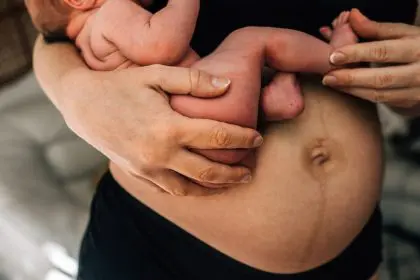Welcoming a new addition to the family is an unparalleled joy, but the postpartum period introduces a spectrum of challenges, with postpartum depression standing as a significant concern. Navigating the journey of new motherhood involves not just physical adjustments but also a rollercoaster of emotions that can impact mental well-being. In the midst of sleepless nights and the enchanting chaos of a newborn, it’s crucial for new mothers and their support systems to be attuned to the signs and symptoms of postpartum depression, ensuring timely detection and compassionate intervention.
This article delves into the nuances of postpartum depression, shedding light on the key indicators that new mothers should monitor after welcoming their bundle of joy. By fostering awareness and understanding surrounding PPD, we aim to empower families to recognize the signs early on, fostering an environment of support and care during this delicate postpartum phase.
Understanding Postpartum Depression:
Postpartum depression is a common mood disorder that affects women after childbirth. While many new mothers may experience the “baby blues” characterized by mood swings and mild anxiety, postpartum depression is a more severe and prolonged condition. It can occur anytime within the first year after giving birth and can have a significant impact on a mother’s well-being and her ability to care for her newborn.
Key Signs of Postpartum Depression:
1. Persistent Sadness or Mood Swings:
The most common and noticeable sign of postpartum depression is persistent sadness. If a new mother experiences intense feelings of sadness, hopelessness, or frequent mood swings that last for more than two weeks, it’s essential to seek professional help.
2. Loss of Interest or Pleasure:
Mothers with postpartum depression often lose interest in activities they once enjoyed. If hobbies, socializing, or even caring for the newborn no longer bring joy, it might be indicative of postpartum depression.
3. Changes in Appetite and Sleep Patterns:
Significant changes in appetite, whether it’s an increase or decrease, coupled with disruptions in sleep patterns, can be signs of postpartum depression. Sleep deprivation is common for new mothers, but persistent insomnia or excessive sleeping should be addressed.
4. Fatigue and Lack of Energy:
Feeling constantly tired or having low energy levels is a common symptom of postpartum depression. This exhaustion goes beyond the typical fatigue associated with caring for a newborn.
5. Feelings of Guilt or Worthlessness:
Mothers with postpartum depression often experience overwhelming feelings of guilt, worthlessness, or inadequacy. These thoughts can hinder their ability to bond with the baby and affect overall self-esteem.
6. Difficulty Bonding with the Baby:
Struggling to connect emotionally with the newborn can be a sign of postpartum depression. Mothers might find it challenging to form a strong, affectionate bond, leading to increased feelings of isolation and sadness.
7. Intrusive Thoughts or Anxiety:
Persistent anxiety, intrusive thoughts about harm coming to the baby or oneself, and excessive worry are common symptoms of postpartum depression. If these thoughts become overwhelming, seeking professional help is crucial.
Seeking Help and Support:
Recognizing the signs of postpartum depression is the first step toward seeking help. It’s essential for new mothers to communicate openly with their healthcare providers, family, and friends about their feelings and experiences. Seeking professional help, such as therapy or counseling, can provide valuable support and coping mechanisms.
In conclusion, postpartum depression is a poignant reality that demands both attention and understanding. The transition into motherhood is a profound experience, and acknowledging the challenges posed by postpartum depression is an essential step toward fostering a supportive environment. By cultivating awareness of the signs and symptoms, new mothers and their dedicated support networks can collaborate to ensure early detection and, subsequently, implement effective interventions.
It is crucial to recognize that seeking help is not a testament to weakness but rather a demonstration of strength and resilience. Postpartum depression, when addressed with the right support mechanisms, can be managed successfully, paving the way for a healthier and happier postpartum journey. This process involves not just the affected mothers but also their partners, family members, and friends who form the backbone of the support system. Together, through understanding, empathy, and proactive measures, we can navigate the challenges of postpartum depression, fostering a nurturing environment where every mother can thrive and relish the profound joys of motherhood.
This story was created using AI technology.

















